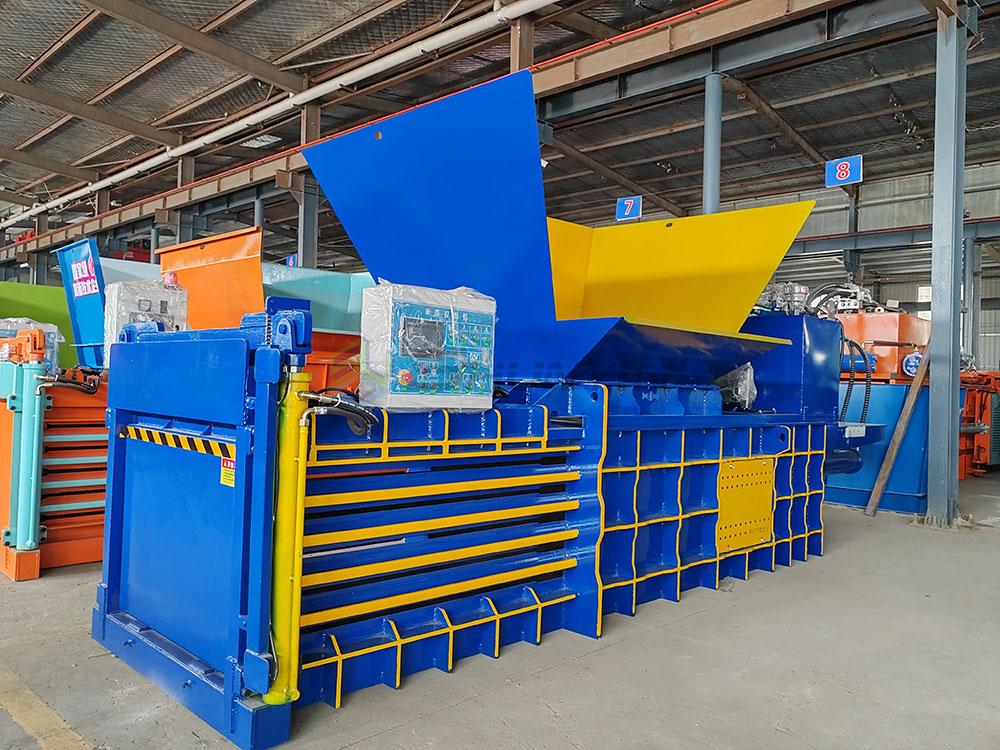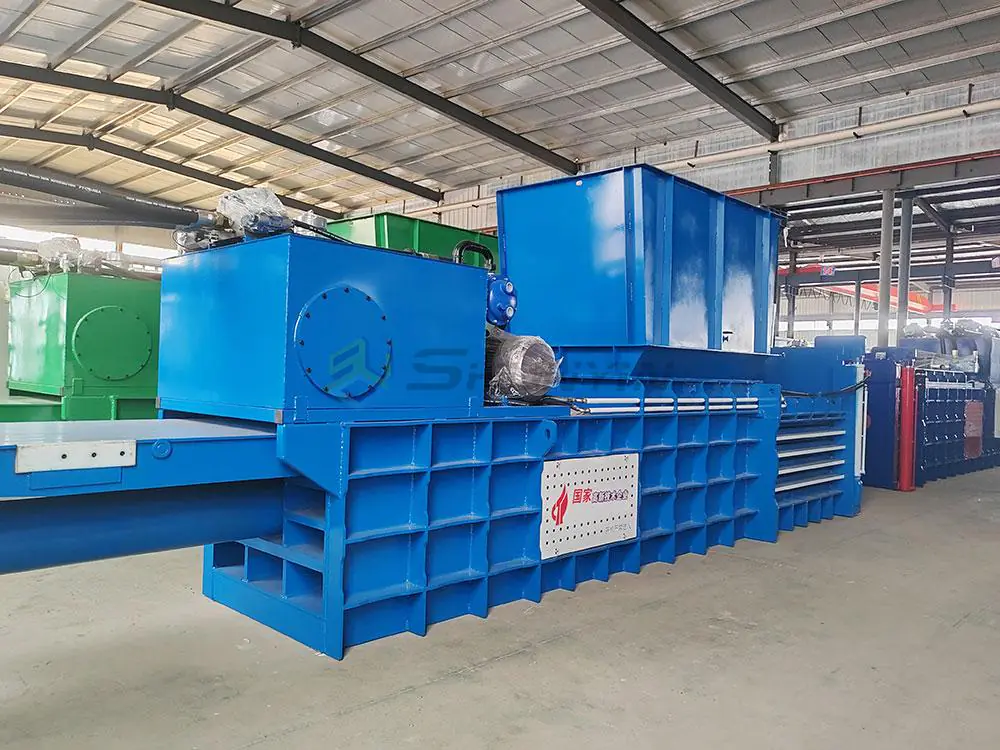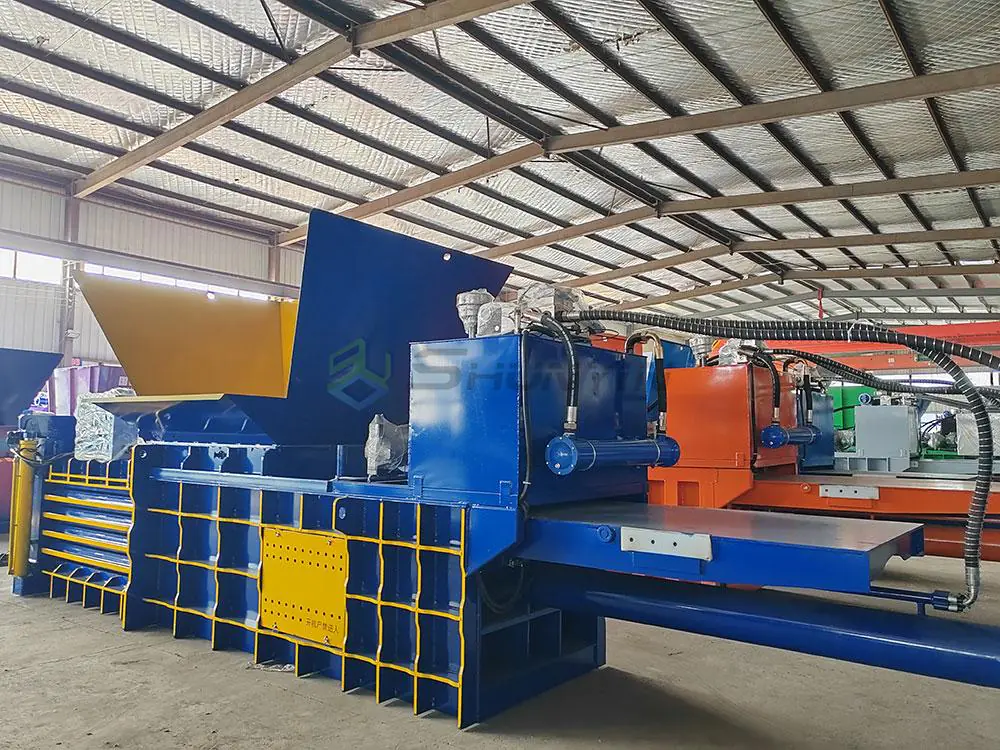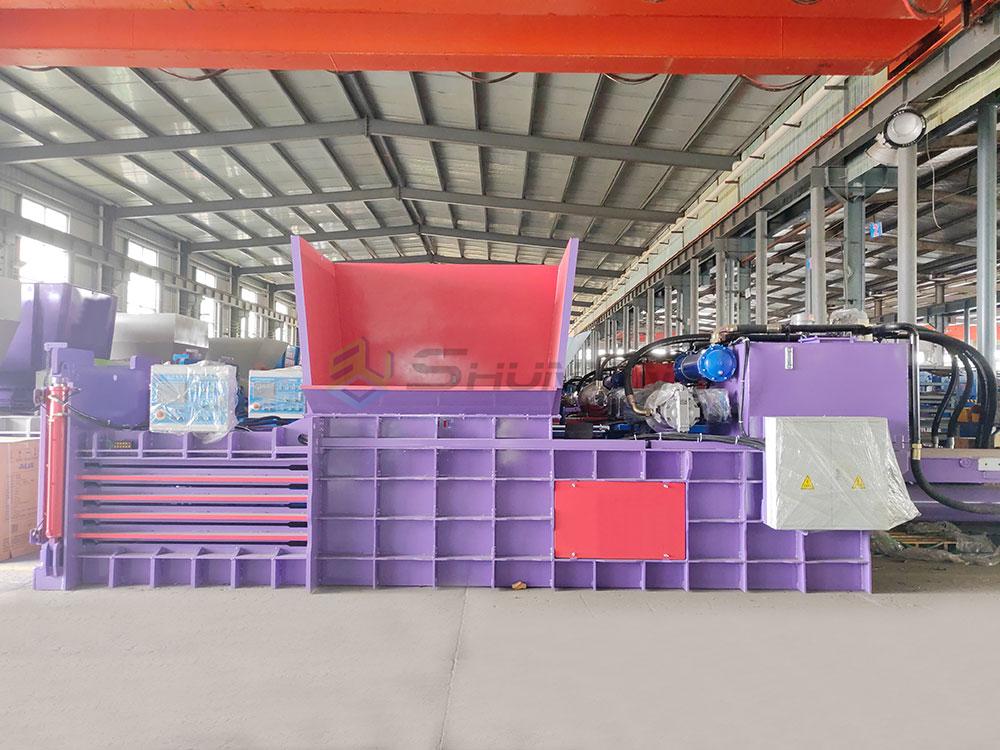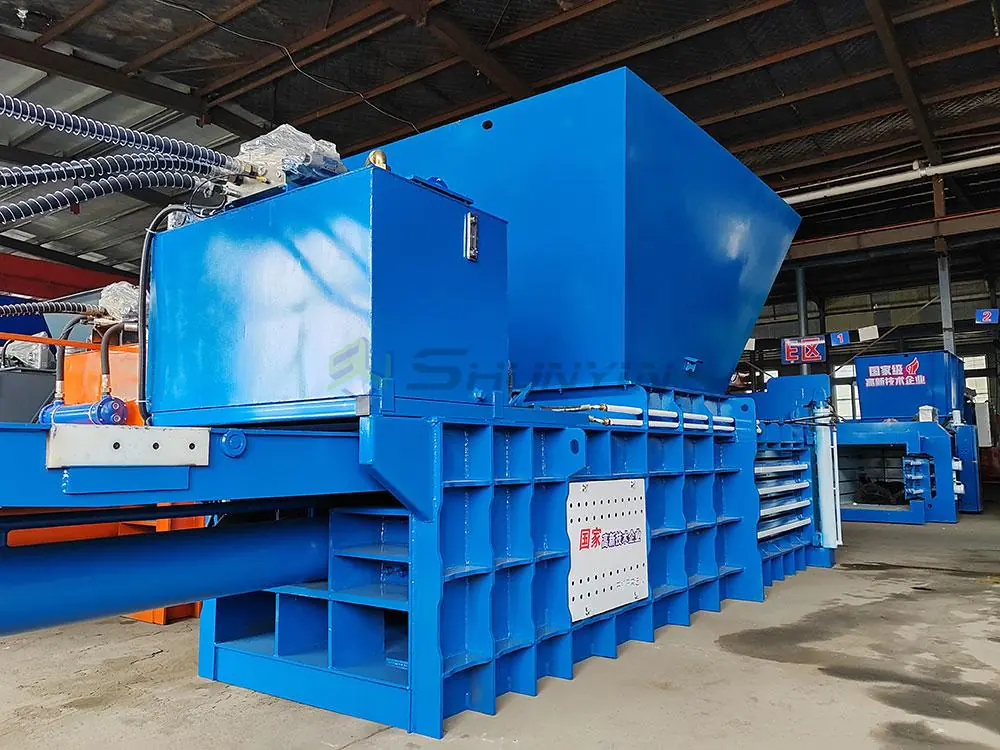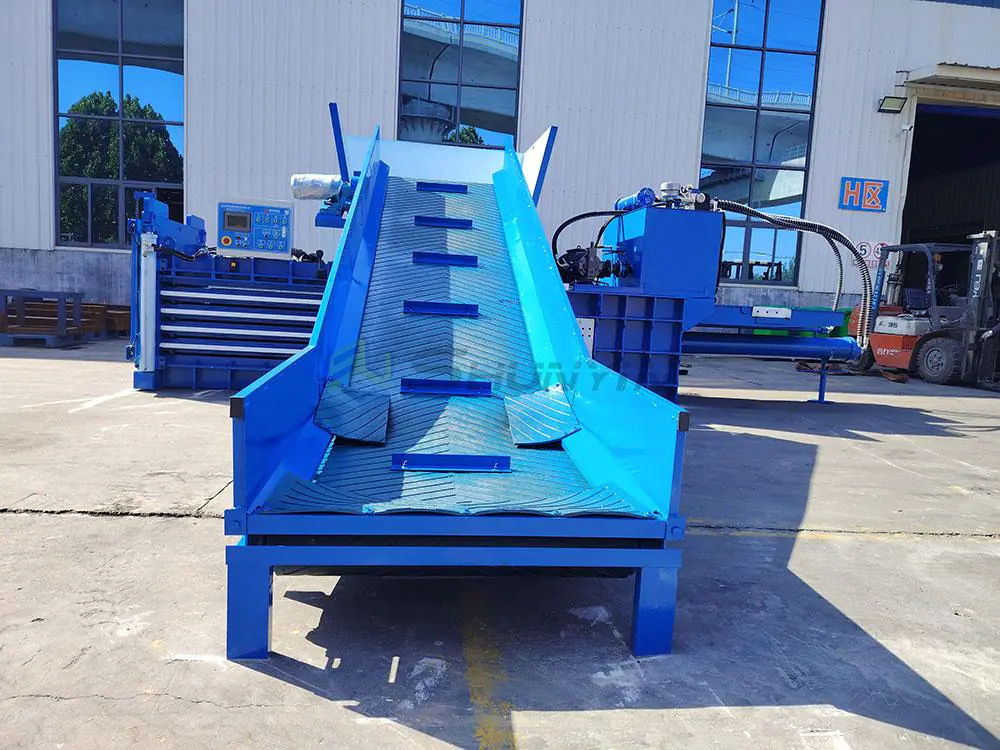An automatic horizontal baling press machine streamlines the process of compressing materials like cardboard, plastic, and paper. But how does it actually improve efficiency? Let’s explore its benefits.
An automatic horizontal baling press machine improves efficiency by automating tasks like feeding, compressing, and tying materials. This reduces labor costs, increases throughput, and ensures consistent bale quality. With features like auto-tie and minimal downtime, it boosts productivity and safety while saving energy.

The need for efficient waste management is crucial in many industries. By automating the baling process, businesses can save time and resources. Let’s dive deeper into how this machine works and why it’s so effective.
What is the use of baling press machine?
A baling press machine is designed to compress large quantities of materials, such as cardboard, plastics, or paper, into compact bales. These bales are easier to store and transport. Baling press machines are used across various industries, including recycling, manufacturing, and agriculture, to manage waste and optimize space.
The baling press machine significantly reduces the volume of waste materials, creating uniform bales that are easy to store and ship. This not only saves space but also enhances the recycling process by ensuring materials are compact and ready for reuse.

Key Benefits of Using a Baling Press Machine
- Volume Reduction: Compresses waste into compact bales, reducing storage needs.
- Improved Handling: Baled materials are easier to stack and transport.
- Time Efficiency: Speeds up the process of waste management, especially for high-volume operations.
Table: Key Features of a Baling Press Machine
| Feature | Function |
|---|---|
| Hydraulic System | Compresses materials using hydraulic force |
| Ejection Mechanism | Pushes compacted bales out of the machine |
| Control System | Manages operation and settings |
| Binding Mechanism | Secures the bale with wire or twine |
What is the purpose of a baler machine?
The purpose of a baler machine is to compress waste materials, turning them into uniform, compact bales. This helps businesses save storage space, reduce transportation costs, and promote efficient recycling. Baling machines are particularly valuable for industries with high volumes of waste that need to be processed quickly and efficiently.
Baler machines optimize the recycling process by transforming loose waste materials into dense, stable bales that are easy to handle and transport. This makes waste management more organized and cost-effective.

How Baler Machines Support Sustainable Practices
Baler machines play a significant role in promoting sustainability. By converting waste into compact bales, these machines help reduce the environmental impact of waste disposal. Properly baled materials can be easily recycled, ensuring they are reused in manufacturing processes or new products.
Table: Advantages of Using a Baler Machine
| Advantage | Description |
|---|---|
| Space Efficiency | Bales take up much less room than loose materials |
| Lower Transportation Costs | Baled materials are easier to move and stack |
| Environmental Impact | Facilitates recycling and reduces landfill waste |
How does a horizontal baler work?
A horizontal baler works by compressing materials horizontally, as the name suggests. These machines feed waste materials from one side and compress them into tightly packed bales using hydraulic force. The bales are then tied, ejected, and ready for storage or transport.
Horizontal balers are preferred for continuous operation, making them ideal for high-volume environments. The machine operates by using a powerful hydraulic system that ensures consistent compression, creating bales that are uniform and compact.

Key Components of a Horizontal Baler
- Hydraulic Cylinder: Applies pressure to compress materials.
- Baling Chamber: Holds materials while they are compressed.
- Ejection Mechanism: Releases the finished bale once it’s tightly compacted.
- Binding System: Ties the bale to ensure it stays intact during transport.
Table: Horizontal Baler Components and Their Functions
| Component | Function |
|---|---|
| Hydraulic Cylinder | Applies pressure to compress materials |
| Baling Chamber | Holds and compresses materials |
| Ejection Mechanism | Releases the compacted bale |
| Binding System | Ties the bale using wire or twine |
Why Horizontal Balers Are Efficient
Horizontal balers allow for high-volume, continuous processing. This is ideal for businesses that generate a lot of waste and need to process it quickly. The continuous nature of horizontal balers reduces downtime, making them more efficient than other baler types.
What is the mechanism of the baler machine?
The mechanism of a baler machine is based on hydraulic force. The machine uses hydraulic cylinders to compress materials into tightly packed bales. The force generated by the hydraulic system is applied uniformly across the material, ensuring that it is compacted efficiently and securely.
Hydraulic systems are central to baling machines, as they provide the necessary force to compress a variety of materials into uniform bales. This mechanism is reliable and efficient, reducing the time and effort required for manual sorting and compacting.

Hydraulic Power: The Heart of the Baling Mechanism
Hydraulic power ensures that the baling process is smooth and efficient. The hydraulic cylinders generate a significant amount of force, allowing the machine to handle even tough materials with ease. This mechanism also provides precise control over the compression process, ensuring the bales are consistent in size and density.
Table: Hydraulic System in Baler Machines
| Component | Function |
|---|---|
| Hydraulic Pump | Generates power for the cylinders |
| Hydraulic Cylinder | Applies pressure to compact materials |
| Control Valve | Regulates the flow of hydraulic fluid |
The Efficiency of Automatic Baler Machines
Automatic baler machines improve efficiency even further. These machines automate the entire baling process, from feeding materials to tying and ejecting the bales. This reduces the need for manual intervention, allowing businesses to handle larger volumes of waste without increasing labor costs.
Conclusion
An automatic horizontal baling press machine enhances operational efficiency by automating the compression process, reducing labor, and improving throughput, making it a valuable investment for businesses.


